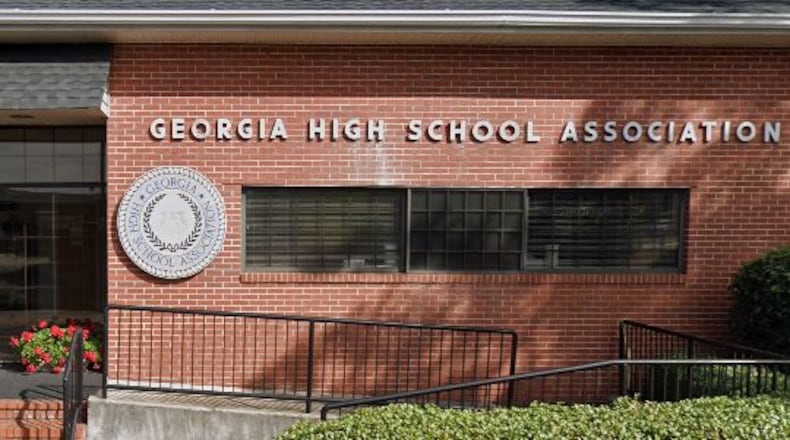The Georgia High School Association is discussing again a plan that would have private schools playing for their own state championships separate from public schools in classes 3A to A.
GHSA reclassification committee chairman Curt Miller, who pushed hard for a similar plan two years ago before compromising, made the motion Tuesday in Thomaston at a GHSA reclass meeting.
This plan, suggested by Muscogee County Schools athletic director Jeff Battles, would have private schools in classes 3A to A competing for one private-only state championship in each sport while continuing to play in regular-season regions with public schools.
The committee tabled Miller’s motion until Sunday at the next reclass committee meeting, which precedes Monday’s executive committee meeting. The executive committee has the power to approve it.
In 2021, Miller, the athletic director at public school Oconee County, backed down from his plan to keep private schools from competing against publics for championships in all classes. He agreed instead to applying a 3.0 multiplier to out-of-zone enrollment in an effort to push private and city schools into higher classifications.
The multiplier effectively moved up several private and city schools, but it did not significantly curtail their success. The AJC was the first to research and report in June that private schools won 61 state titles in 2022-23 compared with 58 in the last season without the multiplier. City schools won 17 titles compared with 16 before the 3.0 multiplier.
The private schools did better because the GHSA abolished the Class A-Private class, and those smaller private schools were dominant when freed to face public schools for championships for the first time in 10 years.
“The multiplier has zero impact on the success rate of private schools,” said Miller according to the GHSA’s minutes of the meeting. “It is time to have a serious conversation about having different playoffs for private and public schools. I want them to be together during the regular season in regions to help with travel and scheduling but then split the playoffs.”
Committee member Kevin Petroski, the athletic director at private school Athens Academy, said a better solution would be a competitive-balance model that would classify private schools based on their track record in each sport but still allow them to face public schools. A competitive-balance model might move a private-school tennis team to the highest class but allow the same school’s football team to remain lower.
The reclass committee heard that idea two years ago but did not seriously consider it because of logistical and administrative concerns of having a school’s sports teams spread across several classes and regions. Several committee members did express an openness to revisiting it Tuesday, according to the minutes.
Having separate private-school playoffs in 3A-A would have a huge impact on who wins state titles.
In 2022-23, there were 78 state championships in classes 3A-A. Private schools won 39 of them despite the overwhelming majority of schools in those classes being public.
In one example, the girls basketball champions in 3A, 2A and A Division I were private schools Hebron Christian, Mount Paran Christian and St. Francis. Only one public school, Clinch County, was a winner. The new plan would’ve had those three private teams playing against each other for one title, opening the door for three more public-school champions.
Only nine private schools play above Class 3A. Some of them, such as Westminster, Lovett and Pace Academy, could fall back into 3A or lower because of new rules defining out-of-zone students. The proposed 3A-A private division might involve all but a handful of the state’s private schools.
The larger private schools, such as Woodward Academy and Marist in Class 6A, responded better to the multiplier and were not as dominant the past academic year.
The reclass committee approved one proposal Tuesday that would limit the size of Class A Division II to the smallest 50 football-playing public schools and keep all private schools out of it. The vote went 15-2 with Petroski and Richard Ricketts, the athletic director at private school Prince Avenue Christian, voting against.
About the Author
The Latest
Featured


